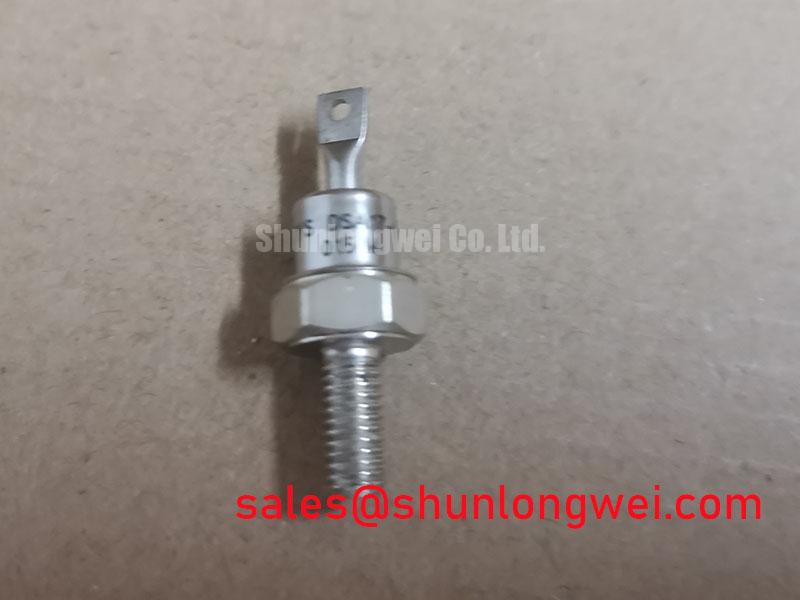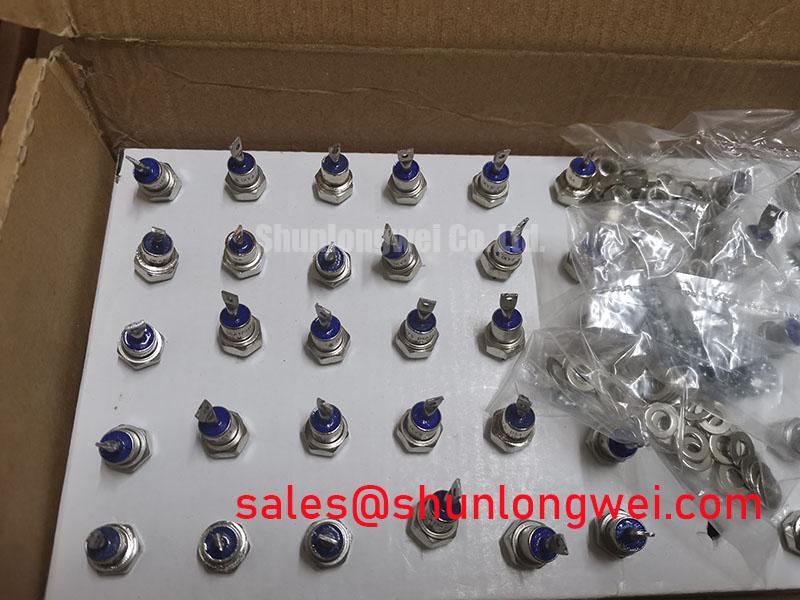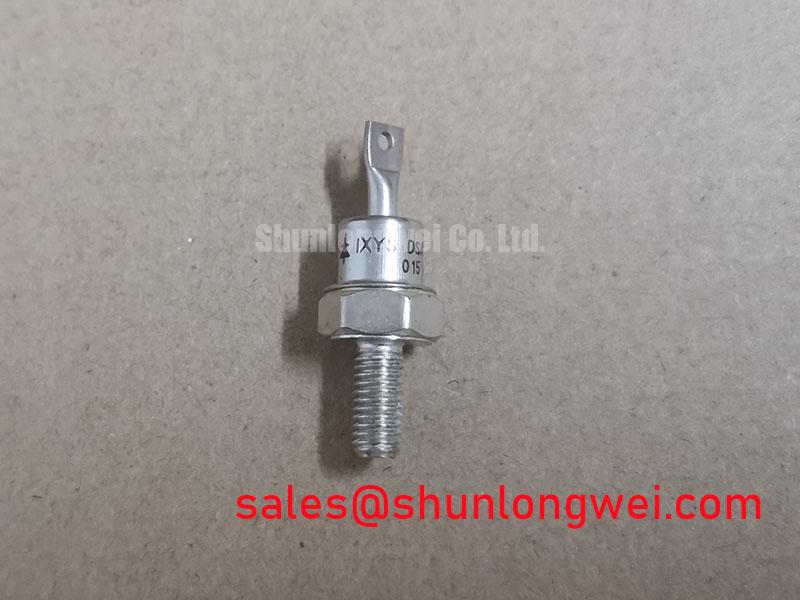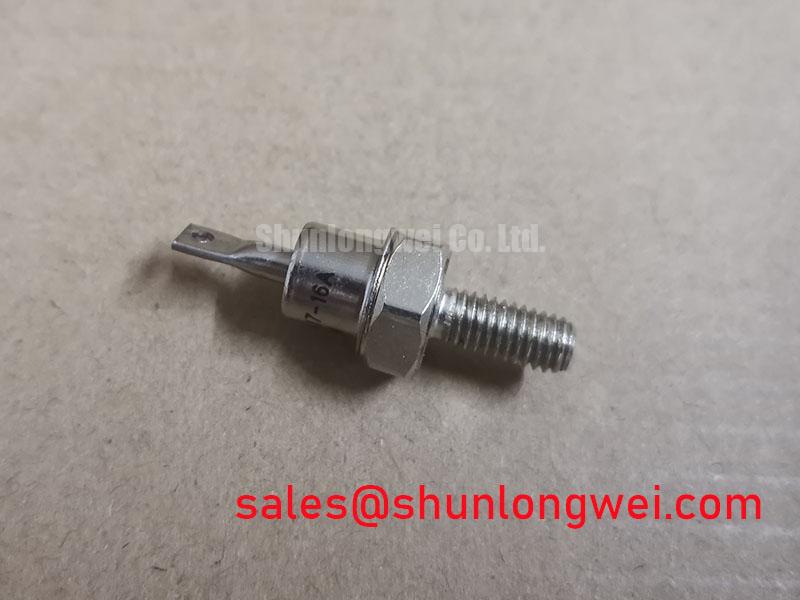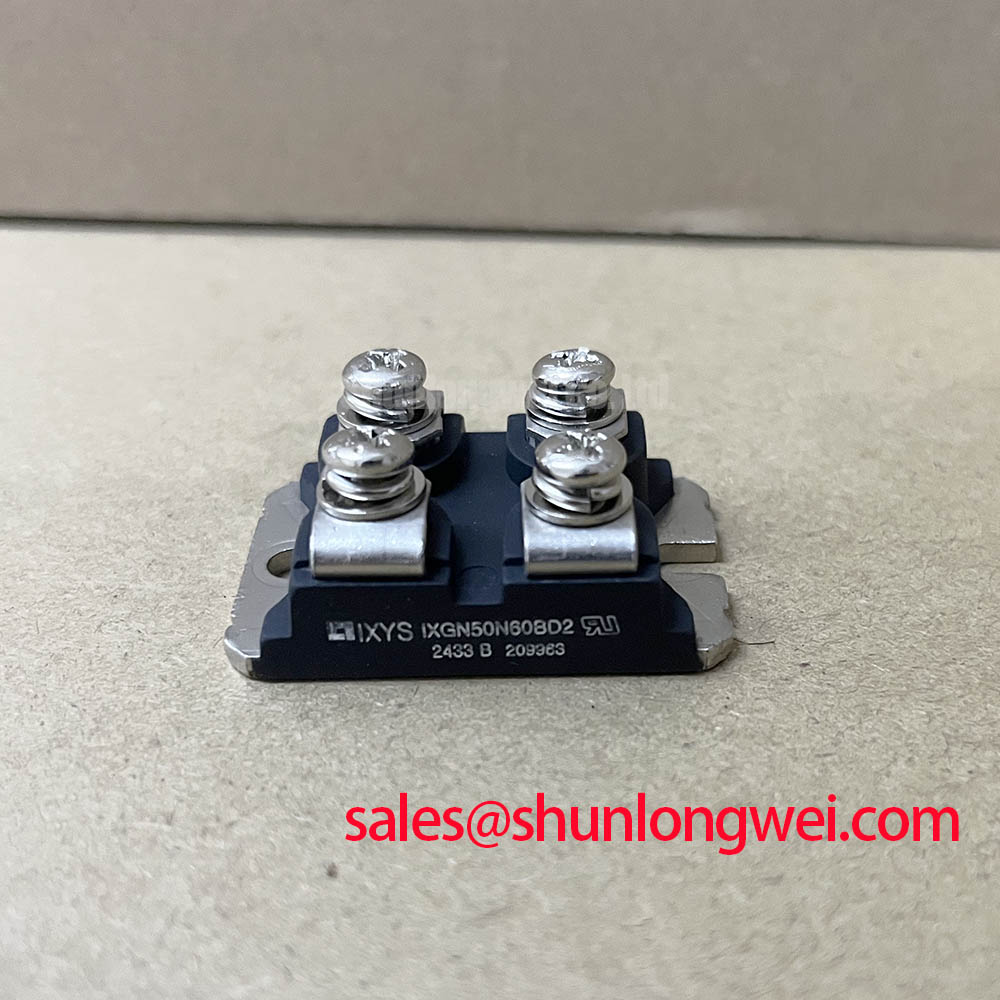Content last revised on January 23, 2026
DSA17-16A Thyristor: 1600V SCR Engineered for Surge Current Reliability in Industrial Controls
An Engineer's Introduction to the DSA17-16A
The DSA17-16A is a single thyristor engineered for exceptional reliability in demanding industrial power control applications. Featuring key specifications of 1600V | 17A (ITAV) | 215A (ITSM), this component delivers two critical engineering benefits: superior surge current survivability and simplified protective fuse coordination. Its high I²t rating allows for precise fuse selection, ensuring the protective device activates before the thyristor is damaged during a fault condition. For line-voltage AC motor control and soft starter applications, the DSA17-16A's robust surge handling makes it a definitive choice for reliable designs.
Application Scenarios & Value
Translating Surge Robustness into System-Level Reliability
The DSA17-16A is optimized for power conversion and control circuits where reliability under electrical stress is paramount. Its primary value is demonstrated in applications prone to high inrush currents or potential fault conditions.
- AC Motor Soft Starters: A key engineering challenge in motor control is managing the high inrush current during startup, which can be several times the nominal operating current. The DSA17-16A's substantial non-repetitive surge current rating (ITSM) of 215A provides the necessary headroom to absorb these transients repeatedly without degradation, ensuring long-term operational integrity in industrial automation.
- Controlled Rectifier Bridges: In applications requiring controlled DC power from an AC source, such as battery chargers or the front-end of a Variable Frequency Drive (VFD), this thyristor provides robust and precise phase control. Its high blocking voltage of 1600V offers a significant safety margin for operation on 400V/480V AC lines.
- Static Switches & Crowbar Protection: The device's reliability and fast turn-on characteristics make it suitable for static switching applications and overvoltage protection circuits (crowbars), where it can quickly divert fault currents to protect sensitive downstream components.
For systems requiring higher current handling in a modular format, devices like the SKKD162/16 may be considered for different system architectures.
Key Parameter Overview
Decoding the Specifications for Fault-Tolerant Designs
The technical specifications of the DSA17-16A are tailored to deliver predictable and reliable performance in industrial environments. The following parameters are particularly important for system design and component selection.
| Parameter | Symbol | Conditions | Value |
|---|---|---|---|
| On-State Characteristics | |||
| Average On-State Current | ITAV | TC = 85°C | 17 A |
| RMS On-State Current | ITRMS | TC = 85°C | 27 A |
| Surge non-repetitive On-State Current | ITSM | t = 10 ms (50 Hz), TVJ = 45°C | 200 A |
| I²t Value for Fusing | I²t | t = 10 ms (50 Hz), TVJ = 45°C | 200 A²s |
| On-State Voltage | VT | IT = 50 A, TVJ = 25°C | < 1.5 V |
| Blocking Characteristics | |||
| Repetitive Peak Off-State Voltage | VDRM/VRRM | 1600 V | |
| Gate Trigger Current | IGT | TVJ = 25°C | < 50 mA |
| Thermal and Mechanical Characteristics | |||
| Operating Junction Temperature | TVJ | -40 to +125 °C | |
| Storage Temperature | Tstg | -40 to +150 °C | |
| Thermal Resistance, Junction to Case | RthJC | 1.5 K/W | |
| Package | TO-220AB | ||
Note: The parameters listed above are for reference. For comprehensive technical data, including characteristic curves and application notes, please refer to the official documentation.
Download the DSA17-16A datasheet for detailed specifications and performance curves.
Frequently Asked Questions
Engineering Inquiries on the DSA17-16A Thyristor
How does the DSA17-16A's 200 A²s I²t rating directly benefit the design of a protective circuit?
The I²t rating is a measure of the thermal energy the thyristor can absorb during a short-duration fault before failure. A rating of 200 A²s allows an engineer to select a fuse with an I²t value lower than this, ensuring that the fuse will reliably open the circuit under a severe overcurrent event, thereby protecting the more valuable semiconductor component and preventing further system damage. This simplifies the process of achieving proper circuit protection coordination.
What is the significance of the 'planar passivated chip' construction mentioned for the DSA17-16A?
Planar passivation is a semiconductor manufacturing process that protects the sensitive p-n junctions of the thyristor. This protective layer provides a very stable and reliable blocking voltage capability (1600V in this case) and results in low leakage currents, even at elevated temperatures. For the design engineer, this translates to predictable performance, higher system efficiency due to lower off-state losses, and enhanced long-term reliability in harsh industrial environments. What defines the DSA17-16A's robustness? Its high surge current (215A) and I²t (200 A²s) ratings.
Technical Deep Dive
Inside the DSA17-16A: Planar Passivation and its Impact on Longevity
The long-term stability of the DSA17-16A is fundamentally linked to its planar passivated chip technology. This design approach directly addresses common failure mechanisms in high-voltage power devices. Passivation involves applying a stable, non-conductive layer, typically silicon dioxide or silicon nitride, over the surface of the thyristor die, particularly covering the edges of the p-n junctions where high electric fields are concentrated.
The primary engineering benefit of this construction is the drastic reduction of off-state leakage currents (IDRM/IRRM). By shielding the junctions from mobile ions and other surface contaminants, the passivation layer maintains the integrity of the blocking characteristic over tens of thousands of operating hours. This is especially critical in systems where high temperatures and fluctuating line voltages are common. A device with poor junction termination can exhibit increased leakage over time, leading to higher standby power consumption and a greater risk of thermal runaway, a common cause of premature failure. This is a key mechanism for preventing overcurrent failure over the long term. What is the main benefit of its TO-220 package? It allows for simple, industry-standard mounting and thermal management.
Think of the passivation layer as the high-quality insulation on an electrical wire. While the copper inside conducts the current, the insulation prevents shorts, leakage, and degradation from the environment. Similarly, the planar passivation on the DSA17-16A chip ensures its internal junctions operate as intended without being compromised by external electrical or environmental stresses, making it a reliable component for critical applications.
Product Inquiry
For detailed evaluation of the DSA17-16A in your design, or to inquire about this component for your application, please contact our technical sales team for further assistance.

